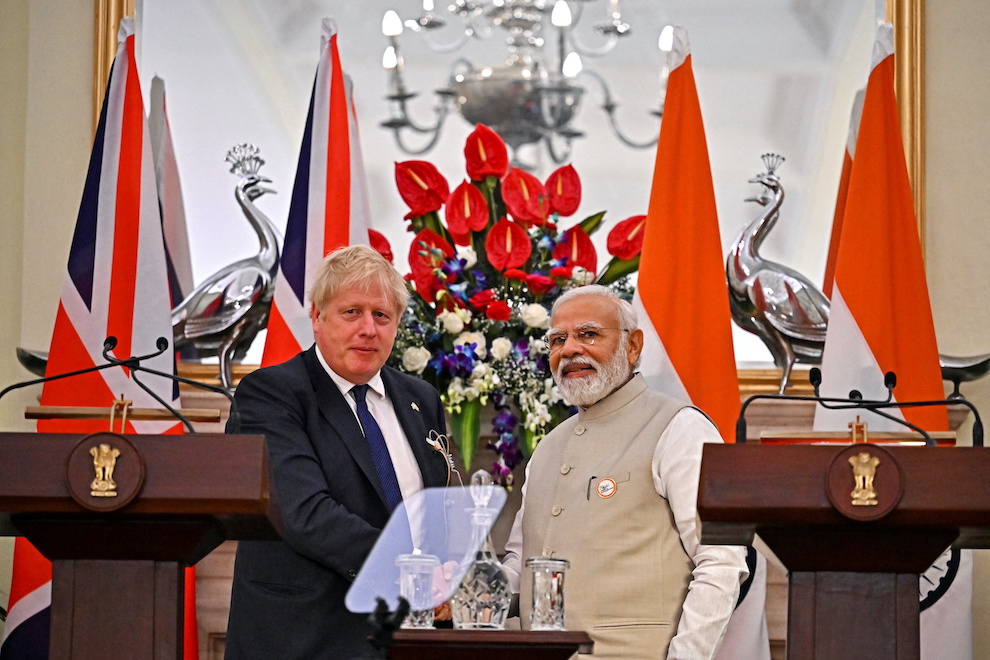Britain and India are looking to ramp up business with a bilateral free-trade deal before the end of the year plus closer defence ties.
The announcements were made after British Prime Minister Boris Johnson arrived in New Delhi this week for talks with his counterpart Narendra Modi.
Johnson, who is under political pressure at home for breaking his own lockdown rules during the pandemic, was keen to see if India was interested in co-production of defence equipment.
He said Britain would support India’s goal of building its own fighter jets, to reduce expensive imports of military equipment. India currently has a mix of Russian, British and French fighter jets.
The Indian government last year gave a 480-billion-rupee ($6.28 billion) contract to state-owned Hindustan Aeronautics Ltd for 83 light-combat aircraft, Tejas, for delivery starting around 2023.
Export Licence
Johnson said Britain was also creating an India-specific open general export licence to slash delivery times for defence items. Only the European Union and the United States currently have such licences.
Foreign Secretary Shringla said India could seek Britain’s support on electric propulsion systems for naval ships and jet propulsion systems for planes. The focus was on “co-development and co-production” of defence equipment, he said.
But Mohan Guruswamy, a director of the Centre for Policy Alternatives in New Delhi, said India would remain reliant on Russian military equipment, partly because it is cheaper.
“Russia’s offer to India is always that ‘Our cupboard is open’ – Britain doesn’t offer India everything it wants and what it does make available is usually more expensive,” he said.
Johnson said a free-trade agreement would help India sell more rice and textiles to Britain.
British trade with India, the world’s second-most populous country with nearly 1.4 billion people, was worth £23 billion ($29.93 billion) in 2019, much lower than the UK’s trade with some much smaller economies such as Ireland.
‘No Pressure’ From Johnson
Meanwhile, India’s foreign secretary said Johnson did not put pressure on Modi over New Delhi’s position on Russia’s invasion of Ukraine.
“Prime Minister Johnson shared his perspective on it, Prime Minister Modi shared ours – which is that the Russia-Ukraine war should end immediately,” Harsh Vardhan Shringla told reporters. “There was no pressure of any kind.”
India abstained from a United Nations vote condemning the invasion and unlike Britain and other Western nations has not imposed sanctions on Moscow, which calls Russia’s actions in Ukraine a “special military operation.”
“We had wonderful talks that have strengthened our relationship in every way,” Johnson told a joint news briefing with Modi on the final day of his two-day trip.
“We have agreed a new and expanded defence and security partnership, a decades-long commitment that will not only forge tighter bonds between us, but support your goal of ‘Make in India’,” he said, referring to Modi’s domestic manufacturing push.
Johnson said negotiators from the two countries were expected to complete the free-trade deal by the end of this year.
“We’re telling our negotiators to get it done by Diwali in October. This could double our trade and investments by the end of the decade,” he said.
• Reuters with additional editing by Jim Pollard
ALSO ON AF:
India Seen Chopping LIC’s IPO Target to $3.9bn
India Transport Minister Warns EV Makers As Fires Spread
























